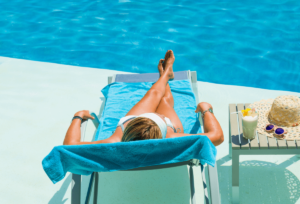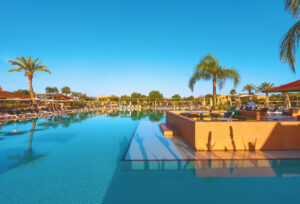A jewel in South Asia’s crown, the island of Sri Lanka is a stunning slice of paradise. Expanses of white, palm-fringed beaches complement bright turquoise waters of the Indian Ocean, making the country a truly spectacular holiday destination.
The currency in Sri Lanka is the Sri Lankan rupee (LKR). As a closed currency, it can only be bought once you arrive in Sri Lanka. Spending money can easily be exchanged at the airport on arrival, foreign exchange bureaux and from ATMs. Not all ATMs on the island accept international credit or debit cards; look out for ATMs displaying the Maestro logo as they generally accept foreign cards without any problems.
Dining out in Sri Lanka
Top dishes to try during your stay in Sri Lanka include parippu, a dhal curry made with red lentils cooked in a delicious mix of spices and coconut milk; wambatu moju, a pickle made with caramelised aubergine, soy sauce and sugar; and mud crab curry, a sumptuously fresh seafood dish featuring mud crabs served with lime.
Expect to pay around £1.50 for a meal for one when eating out in cheaper restaurants, with a three-course meal in a classier restaurant costing around £5. If you’re self-catering, shopping for essentials such as rice, milk, bread and chicken should come to about £5.
For the more adventurous traveller, head to Galle Face Green. Located in Sri Lanka’s capital, Columbo, this urban green space offers a diverse array of tasty street-food treats. Street food is considerably cheaper than eating in restaurants and is a great way to sample traditional cuisine without breaking the bank.
The price of drinks
What better to quench your thirst after a long, lazy day on the beach than a glass of fresh coconut juice? Verging on sacred in Sri Lanka, no trip to the island is complete without sipping the refreshing juices from a king coconut. Pick one up for less than 50p from a roadside coconut stall – and marvel as they whittle you a spatula from the discarded shell!
Drinks in restaurants are generally cheaper than back home, with a pint of local beer costing around £1.70 and a glass of Coke costing under 50p. A 33cl bottle of water costs around 25p when dining out, with a 1.5l bottle costing around 50p in a shop.
If you like the idea of refreshing coconut but fancy something a little stronger, order a glass of arak at the bar. Made from fermented coconut, it is aged in barrels much like whisky. Often on the menu at beach bars and restaurants alike, you can also pick up bottles of the coconut-based spirit from various shops on the island. Expect to pay around £3.50-£4 for a 375ml bottle.
Out and about
Sri Lanka may be best known for its spectacular shores and translucent waters, but the island is also brimming with culture and history. The Temple of the Sacred Tooth Relic is a fine example of the country’s religious history. A Buddhist temple located in Kandy, it is considered one of the most important temples in the Buddhist world. The temple grounds are free to visit, but access to the main temple itself costs around £8 for UK nationals.
Animal lovers should take part in a spot of leopard watching at Yala National Park. Prices start from around £59 for a private guided tour of the park. Look out for leopards, sloth bears, elephants, water buffalo and many more majestic creatures as you drive around the stunning park.
Keen climbers should head into Sri Lanka’s UNESCO-protected lush Central Highlands. An area of outstanding natural beauty famed for its exotic flora and fauna, tea crops and idyllic waterfalls, private guided day trips into the hills cost from £30-£40 per person.
How much spending money should I take to Sri Lanka?
The amount of spending money required for a holiday to Sri Lanka all depends on where you plan to stay and what you intend to do during your stay. As a general guide, £20 per person per day should cover food, drink, travel and basic activities.
If you’re planning to stay in All Inclusive accommodation, £15 per person per day should cover it. We have plenty of cheap All Inclusive holidays for you to choose from. Of course, if you plan to indulge in private tours such as safaris or hiking, allow for a little extra spending money.
Tipping in Sri Lanka
The general motto when it comes to tipping etiquette in Sri Lanka is that tips should be earned, not expected. If you’ve received good service from housekeeping, consider tipping around 50p. Tip porters around 25p-50p depending on how much luggage you have. Bar staff will be quite content with £1 at the end of the evening if the service was great (don’t tip per drink). Tip £1 at smart restaurants and 50p at more informal cafés and eateries.
*Prices correct at the time blog was published and are subject to availability. T&C’s apply.






